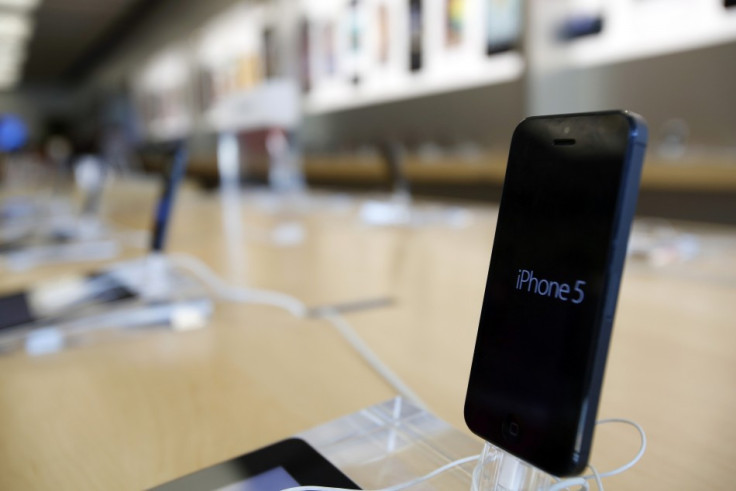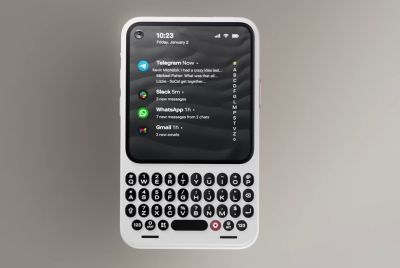Cheaper iPhones Help Boost Apple's British Market Share
Apple's share of the British smartphone market is growing thanks to cheaper, older versions of the iPhone being bought by first-time smartphone users.

Sales data collected by London-based Kantar Worldpanel ComTech reveal that Apple's share of the market jumped from 25.3% to 30.5% for the three month period ending 30 June.
Dominic Sunnebo, global strategic insight director at Kantar, said: "Although the flagship iPhone 5 was widely credited with boosting Apple's global results last week, much of the market share growth for iOS in Britain is thanks to the competitively priced iPhone 4 attracting first time smartphone buyers.
"More than a third of iPhone 4's sold [between April and June] were to consumers who have never owned a smartphone before, compared with just one in 10 new customers buying the iPhone 5."
Despite this resurgence for iOS, Android remains far and away the most popular mobile operating system in the UK, with 56.2% of the market, thanks to being available on a wide range of devices from various manufacturers and across all price points.
This is also true across Europe, where Kantar says Android accounts for an average of 69.8% of sales across Great Britain, Germany, France, Italy and Spain, up from 64.5% a year ago. In the US Android commands 51.5% of the smartphone market, down from 52.6% this time last year.
Apple is widely expected to announce a cheaper, plastic iPhone alongside an update to the iPhone 5 in the autumn. The company has until now resisted the urge to join rivals Samsung, HTC and Nokia in offering a range of handsets at various prices - so far, Apple's strategy involves selling the previous two models at reduced rates.
Sunnebo continues: "Margins are tighter at the entry-level end of the market, but as consumers become more engaged with their smartphone they are increasingly prepared to invest more when they upgrade.
"Apple boasts the highest level of customer loyalty of the operating systems, and by capturing consumers at entry-level it is in a good position to grow its customer base in the future. With almost 19 million feature phone owners left in Britain, there is still a lot for iOS and the other platforms to compete for."
Best of the rest
Microsoft's Windows Phone 8 operating system remains in third place with strong performances in Britain and France where it accounts for 8.6% and 9% of smartphone markets respectively. The US remains a problem for Windows Phone however, as its market share there has dipped slightly, down from 4.6% in the three months to May, to 4% now.
Although flagship handsets like the Nokia Lumia 925 and HTC 8X capture the most headlines, it is the low-end models like the Nokia Lumia 520 and 620 which are quietly boosting Microsoft's market share, according to Sunnebo.
"It is vital for Windows to be seen a mainstream alternative to Android and iOS rather than a niche platform. Selling large volumes of lower end smartphones is a good way of getting Windows seen in the hands of potential customers' friends and family, convincing them there isn't a risk in choosing the operating system
"The majority of people are trend followers, not trend setters, so Windows needs to get as many smartphones to market as quickly as possible."
Microsoft has found itself under mounting pressure from partner Nokia to improve Windows Phone 8 and its selection of apps, which falls some way behind that of iOS and Android.
Speaking to IBTimes UK, Nokia vice president Bryan Biniak said: "We are releasing new devices frequently and for every new device, if there is an app that somebody cares about that's not there, that's a missed opportunity of a sale.
"We are trying to evolve the cultural thinking [at Microsoft] to say 'time is of the essence'. Waiting until the end of your fiscal year when you need to close targets, doesn't do us any good when I have phones to sell today."
Stressing the importance of a well-stocked application store, Biniak added: "It's not just about the hardware, it's about the tools that are on the hardware. You can't sell a phone without the apps, you just can't."
Kantar also found smartphone penetration in Britain to be at 65% in June, with 87% of devices sold in the last three months being smartphones.
© Copyright IBTimes 2025. All rights reserved.






















